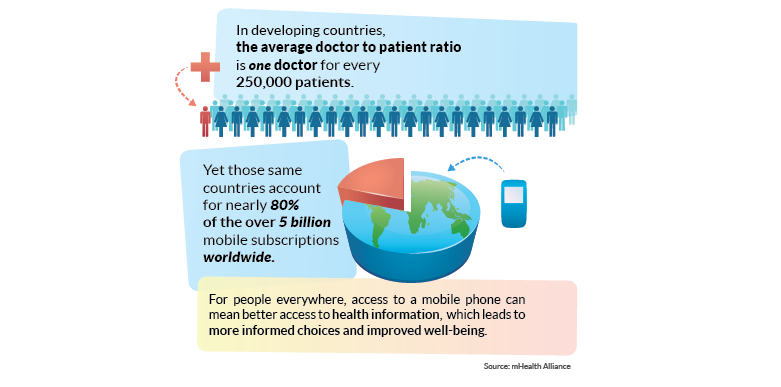According to the mHealth Alliance, in developing countries, the average doctor to patient ratio is 1 doctor for every 250,000 patients. Yet those same countries account for nearly 80% of the over 5 billion mobile subscriptions worldwide.
For people everywhere, access to a mobile phone can mean better access to health information, which leads to more informed choices and improved well-being. A great example of how mobile phones are making a difference in promoting health is with the Mobile Alliance for Maternal Action partnership that “has developed free, adaptable messages informed by experts in maternal, newborn and child health” that are being used and downloaded by 161 organizations in 54 nations around the world.
To learn more about how mobile phones are affecting developing nations in the realms of public health and beyond, check out our upcoming courses on Mobiles for International Development and mHealth. Also see our guest blog post from the mPulse blog on how we’re teaming up again with mHealth Alliance to mobilize mobile health with online learning.


